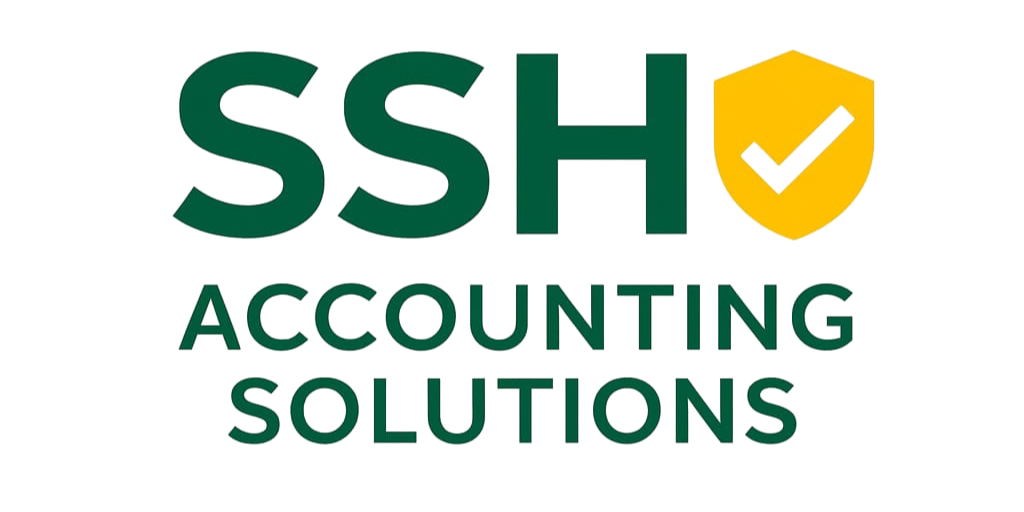Here are the five most common QuickBooks errors small business owners make, and how to fix them.
1. Setting Up Your Chart of Accounts Incorrectly
The Mistake: Many business owners accept QuickBooks’ default chart of accounts or create categories haphazardly as expenses come in. This leads to messy reports and difficulty tracking where your money actually goes.
The Fix: Take time to customize your chart of accounts based on your specific business. Group similar expenses together, but don’t get too granular. For example, instead of separate accounts for “office pens,” “office paper,” and “office folders,” use one “Office Supplies” account.
Your chart of accounts should align with how you need to analyze your business. If you want to track marketing costs separately from general operations, create distinct categories from day one.
SSH Solution: We design custom charts of accounts that give you meaningful insights without overwhelming complexity. A well-structured chart of accounts makes tax time easier and helps you spot trends in your spending.
2. Failing to Reconcile Monthly
The Mistake: Skipping monthly bank and credit card reconciliations is like driving without checking your mirrors. You might be fine for a while, but eventually, you’ll miss something important—duplicate transactions, bank errors, or even fraud.
The Fix: Reconcile every bank account and credit card monthly. Set a recurring calendar reminder for the first week of each month. During reconciliation, you’re not just matching numbers—you’re catching errors, identifying unusual transactions, and ensuring your books reflect reality.
If you’re months behind, don’t panic. Start with the most recent month and work backward, or consider hiring a professional to get you current.
SSH Solution: We handle monthly reconciliations for all our clients, catching discrepancies before they become problems. Clean reconciliations mean accurate financial statements and peace of mind during tax season or audits.
3. Mixing Personal and Business Expenses
The Mistake: Using your business account for personal expenses (or vice versa) creates a compliance nightmare. It makes it harder to track true business profitability, complicates tax deductions, and raises red flags during IRS audits.
The Fix: Open separate bank accounts and credit cards for business use only. If you accidentally make a personal purchase on your business card, categorize it as an owner’s draw or personal expense—don’t try to hide it as a business expense.
Pay yourself a regular salary or draw from your business, then use that money for personal expenses. This creates a clear paper trail and protects you legally.
SSH Solution: We help you establish clean boundaries between personal and business finances. If you’ve already mixed transactions, we can clean up your books and implement systems to prevent it going forward.
4. Ignoring Accounts Receivable
The Mistake: You send invoices and hope clients pay, but you’re not actively tracking what’s owed or following up on late payments. This cash flow problem can sink an otherwise profitable business.
The Fix: Use QuickBooks’ invoicing features to send professional invoices immediately when work is complete. Set up automatic payment reminders for overdue invoices. Review your Accounts Receivable Aging report weekly to see who owes you money and for how long.
Create a collections process—a polite email at 15 days past due, a phone call at 30 days, and a final notice at 45 days. Most customers aren’t intentionally avoiding payment; they just need a reminder.
SSH Solution: We manage invoicing and collections follow-up for our clients, improving cash flow without damaging customer relationships. Our systems ensure you get paid faster while you focus on delivering great service.
5. Not Backing Up Your Data
The Mistake: You assume QuickBooks Online automatically saves everything, so you never think about backups. Then a sync error, accidental deletion, or software glitch wipes out months of work.
The Fix: If you use QuickBooks Desktop, back up your company file weekly to an external hard drive and cloud storage. If you use QuickBooks Online, periodically export reports and key data as PDFs or Excel files. Consider using a third-party backup service designed for QuickBooks.
Regular backups protect you from data loss, corruption, and ransomware attacks.
SSH Solution: We implement secure backup systems for all clients and monitor data integrity regularly. Your financial records are too important to risk losing.


